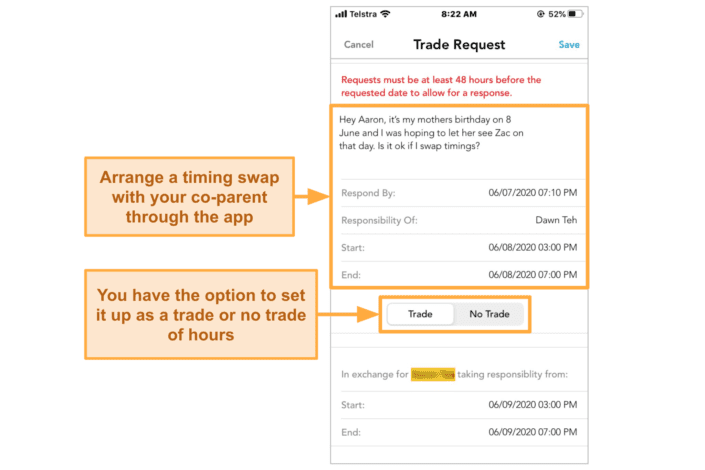Co-parenting is really a journey that requires cooperation, effective communication, and a focus on the well-being of your children. Navigating the challenges of shared parenting could be overwhelming at times, but with the right mindset and strategies, it is possible to create a positive co-parenting environment. In Our Family Wizard Subscription , we'll provide valuable tips and advice to assist you nurture healthy relationships and foster a harmonious co-parenting dynamic.
Prioritize Open and Respectful Communication:
Effective communication may be the cornerstone of successful co-parenting. Maintain open lines of communication with your co-parent, sharing information about your children's activities, school updates, and important milestones. Be respectful and considerate in your communication, keeping the focus on your children's needs. Choose the most appropriate communication method for sensitive discussions, be it face-to-face, phone calls, email, or a co-parenting communication platform.
Create a Consistent Co-Parenting Schedule:
Establishing a consistent co-parenting schedule is crucial for providing stability and routine for the children. Create a parenting plan that outlines custody arrangements, visitation schedules, holidays, and vacations. Adhere to the agreed-upon schedule whenever you can, ensuring that both parents have quality time with the children. Flexibility and willingness to support changes when necessary can help prevent conflicts and maintain a cooperative atmosphere.
Keep Children Out of Conflict:
Shield your children from any conflicts or disputes between co-parents. Avoid involving them in adult issues or using them as messengers. Encourage a confident relationship between your children and their other parent, emphasizing their love and support. Remember, co-parenting is about prioritizing your children's well-being over personal differences or grievances.

Practice Co-Parenting Boundaries:
Establishing healthy boundaries is vital for successful co-parenting. Respect each other's parenting styles and decisions, allowing each parent to have autonomy with regards to decision-making of their time with the kids. Avoid micromanaging or undermining another parent's authority. Consistency and cooperation in parenting approaches can provide stability and reduce confusion for your children.
Seek Support When Needed:
Co-parenting can be emotionally challenging sometimes. Please seek support from professionals such as therapists, counselors, or mediators. These experts can assist you navigate conflicts, improve communication, and find answers to co-parenting dilemmas. Additionally, joining support groups or seeking advice from trusted friends or family members who have experienced successful co-parenting can offer valuable insights and reassurance.
Foster a Positive Co-Parenting Mindset:
Maintain a positive mindset and concentrate on the benefits of co-parenting for your children. Acknowledge that both parents play an important role in their upbringing, and by working together, it is possible to give a loving and stable environment. Forget about past resentments, forgive, and commit to continue with a cooperative approach.
Co-parenting requires commitment, patience, and ongoing effort. By prioritizing open communication, establishing consistent schedules, respecting boundaries, and seeking support when needed, you can create a healthy co-parenting dynamic that nurtures the well-being of one's children. Remember, your kids benefit greatly from the positive co-parenting relationship, and your collective efforts can shape their lives positively for a long time ahead. Embrace the journey of co-parenting with love, compassion, and a shared commitment to your children's happiness.
